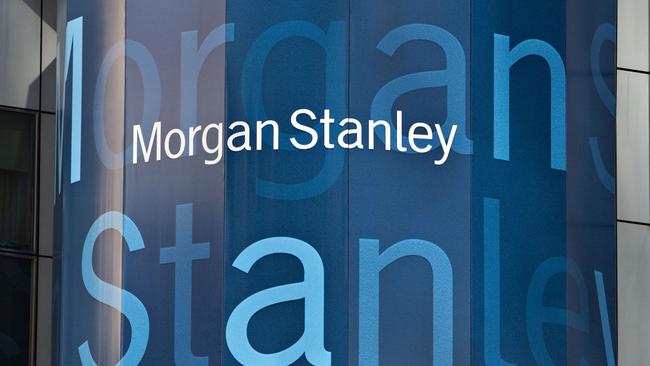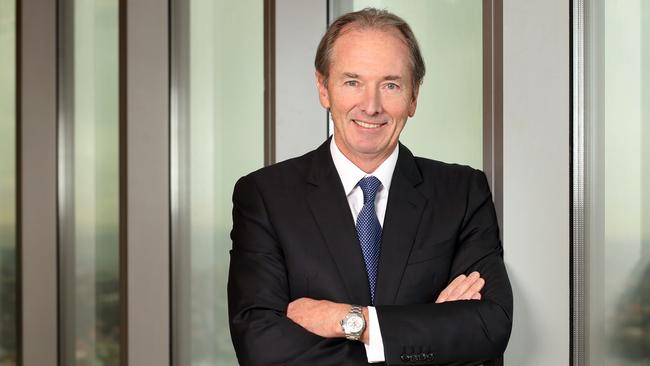
This column understands the average bonus payments at Morgan Stanley were down on last year, some in the order of 20 per cent to 30 per cent, albeit that of individual business unit performances and of individuals varied.
Bonus day – or “comp day” as it’s generally referred to – is the biggest day of the year for investment banks, which are often criticised for gruelling hours and ruthless cuts when cycles turn.
Sources said local staff learned of their compensation, including bonuses for those receiving them, and some were nursing disappointment on Thursday after last year’s bumper payments.
But there is a general understanding that payments across the board will be markedly lower in this bonus round, given activity levels across mergers and acquisitions, and equity capital markets, were significantly lower in 2022, curtailing fee intake.
Morgan Stanley is led by Australian James Gorman globally, and the bank reports fourth-quarter earnings on January 17.

Goldman Sachs and JPMorgan will separately inform Australian staff of bonuses on Wednesday, in what will be a frantic day for the domestic investment banking sector. Payments at Goldman may be down as much as 40 per cent and the firm has embarked on a sharp round of job culling – or axing 3200 staff - globally to slice costs.
As many as 10 Australian staff at Goldman are being let go as part of the headcount rationalisation. Morgan Stanley undertook a more modest global job cutting round in December.
JPMorgan will report fourth-quarter earnings on Friday in the US, providing more insight into its remuneration pool and how it fared, given slower levels of takeovers and initial public offerings globally. As JPMorgan is a retail bank, the tough environment will be somewhat offset by the fact that bank net interest margins benefit in times of rising rates.
The Wall Street banks are pulling back on pay and costs after benefiting from record levels of merger and acquisition activity in 2021, and scaling up headcount to meet demand while also paying more to retain key staff. Deal activity retreated sharply in 2022.
Bankers are optimistic there may be a recovery in transaction volumes in 2023 if interest rates plateau in the US and Australia, as inflation is brought under control. But more expensive funding and lingering dislocation in debt markets has market pundits treading cautiously.
Citigroup and Bank of America are expected to inform staff of bonuses later this month.
European investment banks UBS and Credit Suisse report their fourth-quarter earnings later than the US banks, which tends to mean bonuses day is later too. UBS is scheduled to report fourth-quarter earnings on January 31, while Credit Suisse’s quarterly update will land on February 9.
UBS in Australia tends to communicate bonuses to staff in early February.
The bonus cuts at under-pressure Credit Suisse are expected to go even deeper than its peers, with Bloomberg reporting the bank will reduce its bonus pool by about half. Credit Suisse has endured a turbulent period marred by the separate collapses of financier Greensill and hedge fund Archegos Capital.
Macquarie Group has a March 31 year end and its bonus period typically gets underway in May.
Baton change
Jeff Chapman-backed Bennelong Funds Management has executed a succession plan by tapping global head of Fidante Partners John Burke to take over as chief executive.
He takes the reins from longstanding chief executive Craig Bingham, who has led Bennelong Funds for eight years and spearheaded its push offshore.
Bingham and the Bennelong board spent the past two years planning his succession.
Chapman, whose wealth on The List of Australia’s wealthiest 250 individuals was estimated at $672m, ploughs his share of profits from Bennelong Funds to his Bennelong Foundation, which supports a range of immigrant and community programs.
Burke’s credentials include stints at Mercer, AllianceBernstein and Deutsche Bank. More recently he established Challenger Investment Solutions before being appointed to the Fidante role. He is expected to join Bennelong in the first half of 2023, following a period of gardening leave.
Bennelong chairman Michael Dwyer said of the appointment: “He brings leadership strength in his track record as well as extensive knowledge of the funds management sector and will be a pivotal part of the next stage of our growth ambitions.”
Bingham set up Bennelong’s offshore arm, BennBridge, in the UK and US, which resulted in the firm partnering with fund managers and teams in markets outside Australia. Through his tenure the firm’s assets under management and advice expanded to more than $15bn, from about $5 billion in 2014.
There will be a transition period and overlap between Bingham and Burke.
“I feel it’s time to pass the reins to the next leader,” Bingham said. “I’ve enjoyed my time at Bennelong immensely and am very proud of everything we’ve achieved.”
But given issues plaguing listed fund managers in Australia over the past two years, one would assume any plans for Chapman to list Bennelong are firmly on hold. Bennelong has at times looked at various strategic options, including an initial public offering.
Bennelong has stakes in a stable of nine funds management boutiques. Fidante runs a similar model.




Morgan Stanley got the ball rolling locally on Thursday for the key investment banking bonus remuneration period, informing most staff of a less lucrative payday after a slower 2022 for deals.